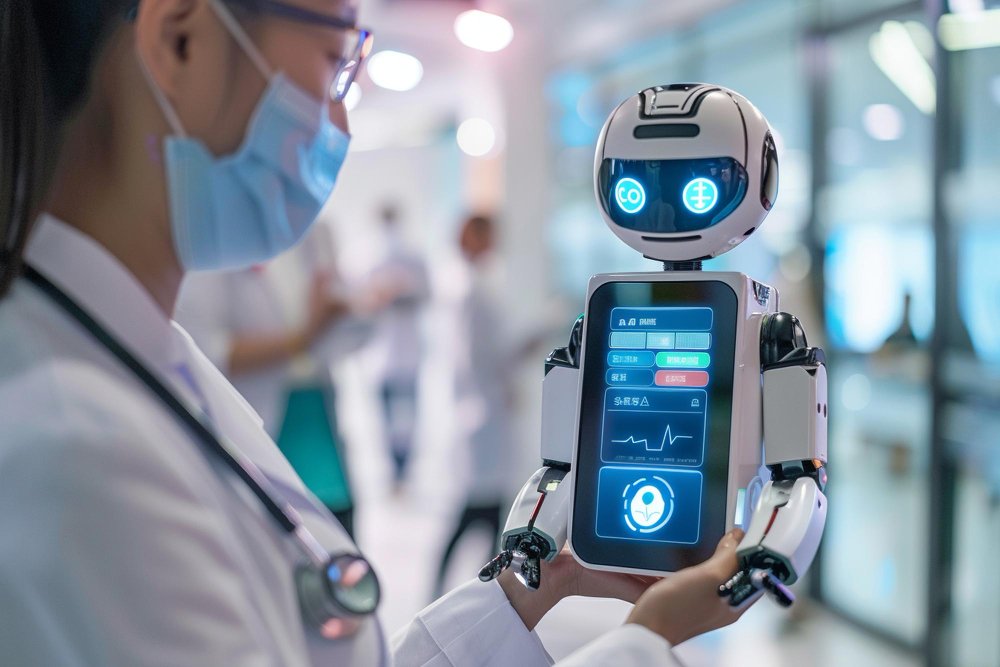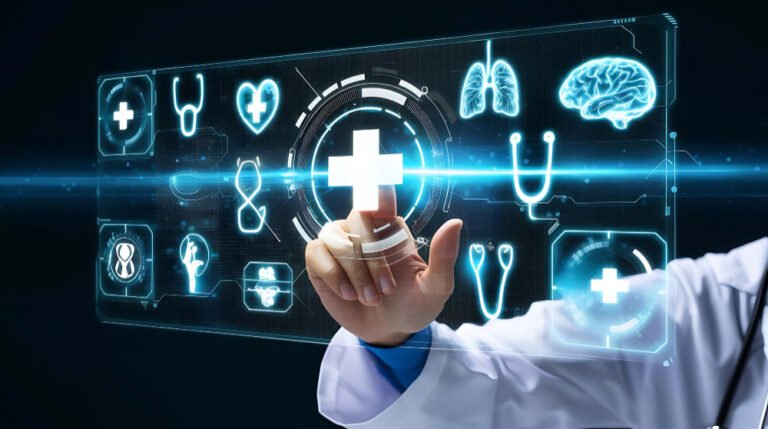Can AI Help Cure Diseases? Complete Information
Artificial Intelligence (AI) is swiftly revolutionizing numerous industries and healthcare is no exception. With its capability to process large datasets, recognize patterns, and generate insights, and predictions, AI is increasingly being integrated into medical research, diagnostics, and treatment planning. But can AI truly help cure diseases? This article explores the current applications of AI in healthcare, its potential to revolutionize disease treatment, and the challenges and ethical considerations involved.
AI in Diagnostics
Early Detection
AI algorithms are particularly adept at analyzing medical imaging. In radiology, AI can assist in the early detection of diseases such as cancer. For instance, AI systems can analyze mammograms for breast cancer or CT scans for lung cancer with a level of accuracy that rivals human radiologists. Early detection is crucial in these diseases as it significantly increases the chances of successful treatment.
Predictive Analytics
AI can also predict disease outbreaks and progression. By analyzing patterns in data, such as electronic health records and genetic information, AI can identify individuals at high risk of developing certain conditions. This predictive capability allows for preventive measures and early interventions, potentially reducing the burden of chronic diseases like diabetes and heart disease.
AI in Treatment
Personalized Medicine
Personalized medicine tailors treatment plans to individual patients based on their unique genetic makeup, lifestyle, and environment. AI plays a pivotal role in this approach by analyzing large datasets to identify which treatments are likely to be most effective for specific patient groups. This can lead to more effective and targeted therapies, reducing trial and error in treatment plans.
Drug Discovery
Traditionally, drug discovery is a lengthy and costly process. AI speeds up this process by predicting the interactions between various compounds and targets in the body. Machine learning models can analyze vast chemical libraries to identify potential drug candidates quickly. This not only speeds up the discovery process but also reduces costs, potentially leading to new treatments for various diseases.
AI in Disease Management
Chronic Disease Management
Managing chronic diseases like diabetes, hypertension, and asthma requires continuous monitoring and timely interventions. AI-powered health apps and wearable devices can track patients’ vital signs, medication adherence, and lifestyle factors in real time. This continuous monitoring allows healthcare providers to make informed decisions and provide personalized care, improving patient outcomes.
Mental Health
AI is also making strides in mental health care. Chatbots and virtual therapists, powered by AI, offer support to individuals with mental health issues, providing immediate assistance and reducing the stigma associated with seeking help. These AI tools can analyze speech patterns and text inputs to detect signs of mental health conditions, offering timely interventions and support.
AI in Surgical Procedures
Robotic Surgery
Robotic-assisted surgery is another area where AI is making significant contributions. AI-powered surgical robots can perform complex procedures with high precision, reducing the risk of complications and improving recovery times. These robots can assist surgeons by providing real-time data, enhancing their capabilities, and leading to better surgical outcomes.
Minimally Invasive Techniques
AI also supports minimally invasive surgical techniques by providing enhanced visualization and guidance. This reduces the physical trauma to patients, leading to shorter hospital stays and quicker recovery times.
Challenges and Ethical Considerations
Data Privacy
The integration of AI in healthcare raises significant data privacy concerns. Protecting patient data and ensuring its secure handling is paramount. Strict regulations and robust security measures are necessary to safeguard sensitive information.
Bias in AI Algorithms
AI algorithms are only as good as the data they are trained on. If the data contains biases, the AI systems may perpetuate these biases, leading to disparities in healthcare. Ensuring diverse and representative data sets is crucial to mitigate this risk.
Ethical Dilemmas
The use of AI in healthcare also poses ethical dilemmas. Questions about accountability and transparency arise when AI systems make decisions that impact patient care. Clear guidelines and regulations are necessary to address these ethical concerns and ensure that AI is used responsibly in healthcare.
Role of AIotechnical.com
AIotechnical.com is at the forefront of exploring and implementing AI solutions in healthcare. The platform provides comprehensive resources and insights into the latest advancements in AI technologies and their applications in disease treatment and management. By bridging the gap between AI research and practical healthcare applications, AIotechnical.com is contributing to the development of innovative solutions that have the potential to transform patient care. The website offers a wealth of information, including case studies, expert analyses, and updates on cutting-edge AI research, making it a valuable resource for healthcare professionals, researchers, and anyone intrigued by the convergence of AI and healthcare.
Conclusion
AI holds tremendous potential to revolutionize the way we diagnose, treat, and manage diseases. From early detection and personalized medicine to drug discovery and robotic surgery, AI is making significant strides in healthcare. However, the successful integration of AI into healthcare requires addressing challenges related to data privacy, algorithmic bias, and ethical considerations.
While AI may not “cure” diseases in the traditional sense, it certainly enhances our ability to combat them more effectively. By leveraging AI technologies, we can move closer to a future where diseases are detected earlier, treatments are more personalized, and patient outcomes are significantly improved.
As AI continues to evolve, platforms like AIotechnical.com will play a crucial role in disseminating knowledge and fostering innovation in healthcare. By staying informed and engaged with the latest developments in AI, we can harness its full potential to improve global health outcomes. The journey towards curing diseases may be long, but with AI as a powerful tool in our arsenal, we are undoubtedly on the right path.







